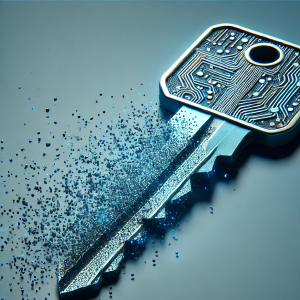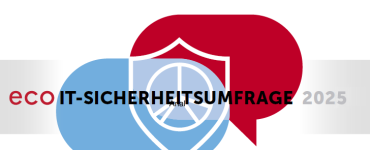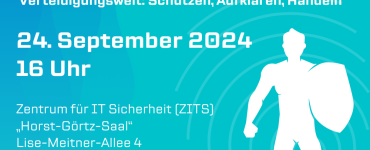Global Encryption Day 2024 highlights the crucial role of encryption for data protection and cybersecurity worldwide. Organised by the Global Encryption Coalition, the day draws attention to the need to protect personal and business data from growing cyber threats.
Oliver Dehning, Leader of the eco Security Competence Group, emphasises: “The security and reliability of communications, transactions and stored data depend directly on the strength of encryption.” Any weakening of this technology endangers the central systems and processes of our societal systems.
An important trend in this context is passwordless authentication. Technologies such as FIDO2, WebAuthn and Passkeys are changing the way we authenticate ourselves online. Instead of passwords, cryptographic key pairs are used. FIDO2, developed by the FIDO Alliance, enables secure and user-friendly authentication on the Internet. WebAuthn, as the underlying API, enables password-free logins by using a cryptographic key pair: The private key remains securely on the user’s device, while the public key is stored on the server.
Encryption builds trust
Olaf Pursche, Head of Communications at Swiss IT Security Group AG, together with Dehning, Head of Security CG, emphasises that encryption is essential to protect sensitive business data from cyberattacks. Especially in times of growing cybercrime, increasing remote working and strict data protection requirements, it is becoming increasingly important. “In this way, companies ensure trust with partners and customers and protect their data from unauthorised access while complying with regulations such as the GDPR,” he explains.
Passkeys further simplify logging in by replacing passwords with biometric methods such as fingerprints or facial recognition. The advantage of these systems lies in their high level of security and user-friendliness: the private key is never shared or exposed online, making them highly resistant to phishing and brute-force attacks. They allow for cross-platform usae, as passkeys can be securely synchronised on different devices. This passwordless encryption technology could fundamentally change the future of cybersecurity. Its integration into more and more digital services and platforms makes it not only easier but also safer to navigate the Internet without having to memorise passwords.
With S/MIME against cybercrime
In addition to passwordless authentication and the encryption of data transmissions, the protection of email communication is gaining importance, as emails remain a popular attack vector. Many companies rely on S/MIME certificates (Secure/Multipurpose Internet Mail Extensions) to ensure the security of their email communication. These certificates enable end-to-end encryption of emails, ensuring that confidential content can only be read by authorised recipients. Moreover, S/MIME certificates allow emails to be digitally signed, ensuring the sender’s authenticity and protecting against email spoofing and phishing. This not only strengthens the domain reputation of companies, but also helps meet compliance requirements such as the GDPR by protecting sensitive data in emails. Thus, S/MIME certificates play a crucial role in cybersecurity and building trust in digital communication, especially in times of increasing cyber threats.






